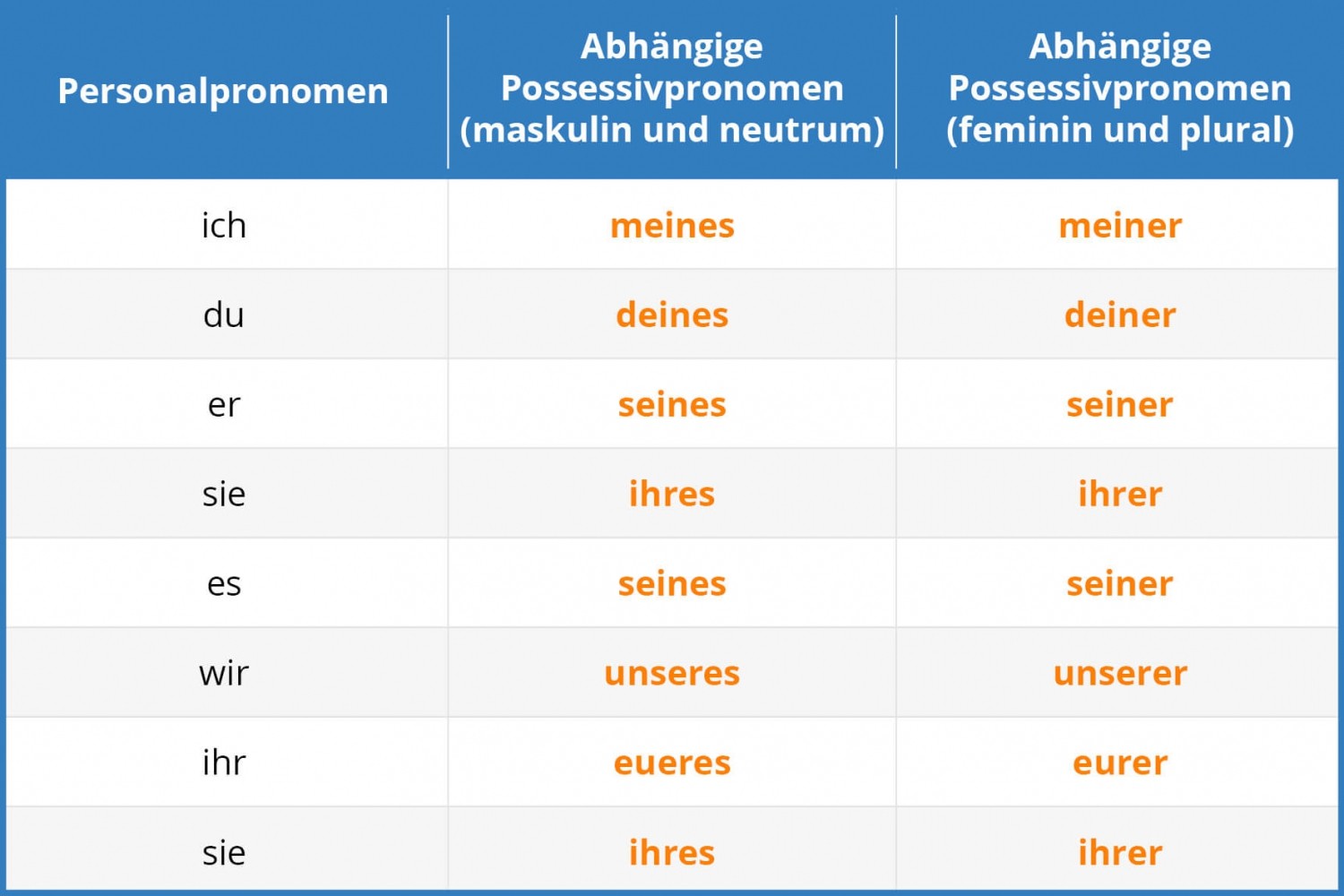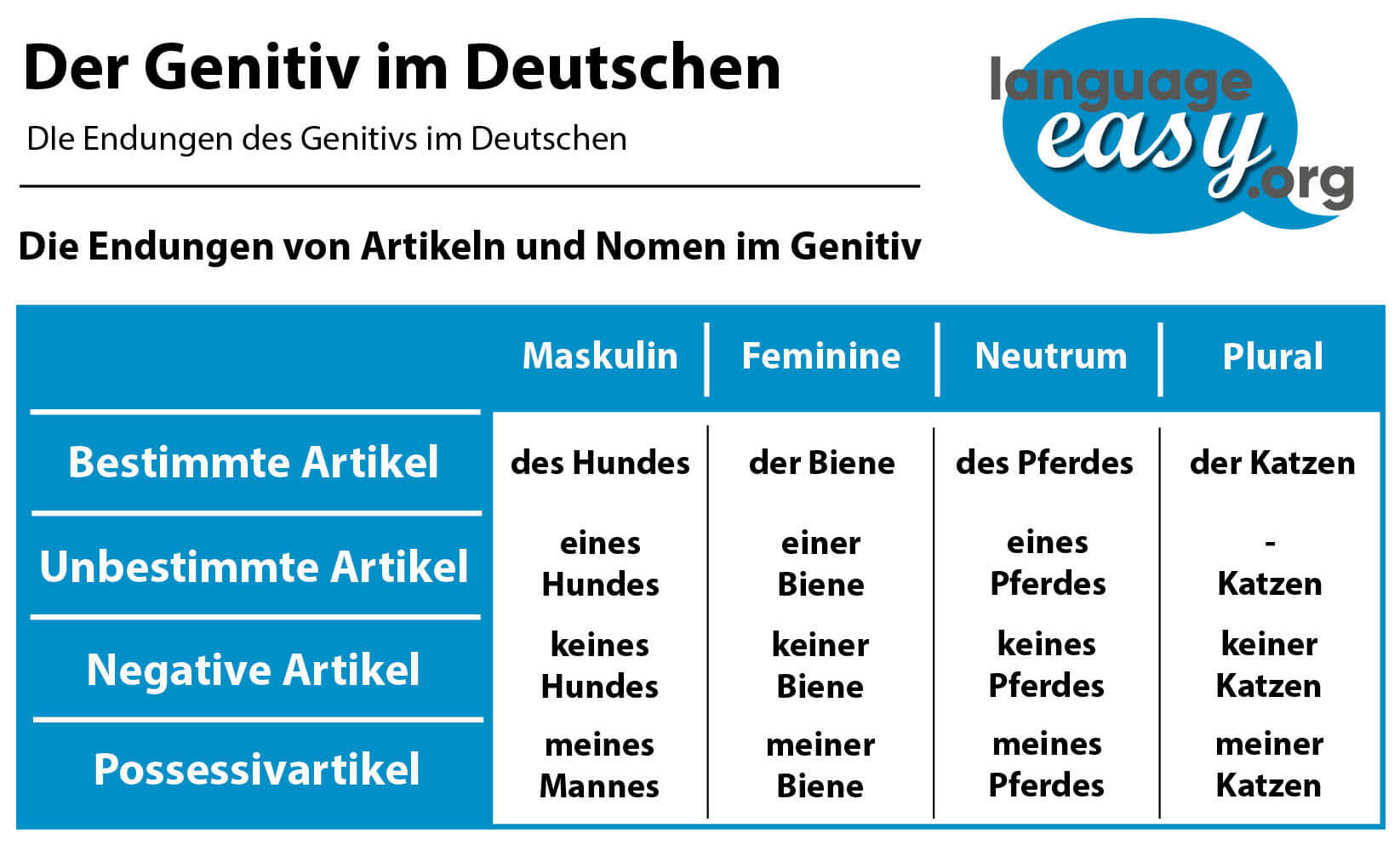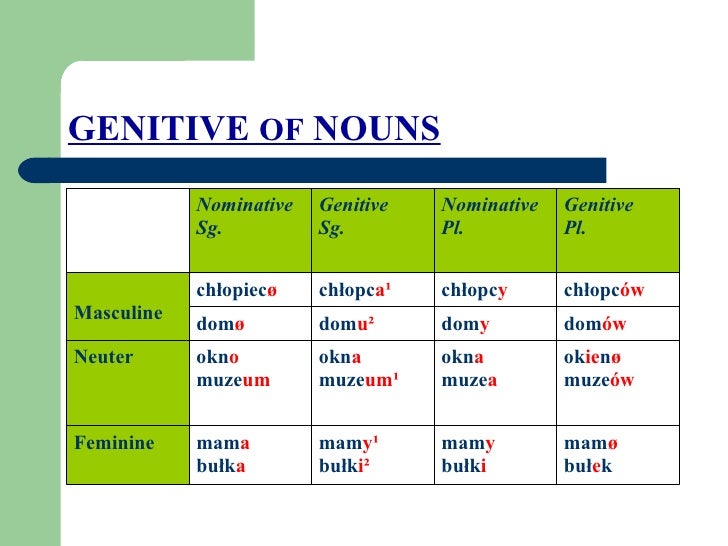Genitive Form German
Genitive Form German - The genitive case indicates that noun belongs to or bears some kind of relationship with someone or something. (genitiv) the genitive case (genitiv) shows belongings or possession. It is one of four german cases. What is the german genitive case? The genitive is rendered in. Genitiv) represents the second of the four cases, which exist in german grammar, and serves as an indication of.
(genitiv) the genitive case (genitiv) shows belongings or possession. The genitive case indicates that noun belongs to or bears some kind of relationship with someone or something. Genitiv) represents the second of the four cases, which exist in german grammar, and serves as an indication of. What is the german genitive case? The genitive is rendered in. It is one of four german cases.
What is the german genitive case? Genitiv) represents the second of the four cases, which exist in german grammar, and serves as an indication of. The genitive case indicates that noun belongs to or bears some kind of relationship with someone or something. (genitiv) the genitive case (genitiv) shows belongings or possession. It is one of four german cases. The genitive is rendered in.
German genitive case your top guide How to get fluent, with Dr Popkins
The genitive is rendered in. The genitive case indicates that noun belongs to or bears some kind of relationship with someone or something. It is one of four german cases. Genitiv) represents the second of the four cases, which exist in german grammar, and serves as an indication of. What is the german genitive case?
possessive Could someone explain how to form the genitive partitive
(genitiv) the genitive case (genitiv) shows belongings or possession. The genitive is rendered in. It is one of four german cases. Genitiv) represents the second of the four cases, which exist in german grammar, and serves as an indication of. The genitive case indicates that noun belongs to or bears some kind of relationship with someone or something.
Unlock the Power of German Genitive PrepositionsIt's Easier than You
The genitive case indicates that noun belongs to or bears some kind of relationship with someone or something. What is the german genitive case? Genitiv) represents the second of the four cases, which exist in german grammar, and serves as an indication of. The genitive is rendered in. (genitiv) the genitive case (genitiv) shows belongings or possession.
The German Genitive Learn German with
(genitiv) the genitive case (genitiv) shows belongings or possession. The genitive case indicates that noun belongs to or bears some kind of relationship with someone or something. Genitiv) represents the second of the four cases, which exist in german grammar, and serves as an indication of. The genitive is rendered in. It is one of four german cases.
The German Genitive Learn German with
(genitiv) the genitive case (genitiv) shows belongings or possession. What is the german genitive case? Genitiv) represents the second of the four cases, which exist in german grammar, and serves as an indication of. The genitive is rendered in. It is one of four german cases.
The German Genitive Learn German with
It is one of four german cases. The genitive case indicates that noun belongs to or bears some kind of relationship with someone or something. Genitiv) represents the second of the four cases, which exist in german grammar, and serves as an indication of. (genitiv) the genitive case (genitiv) shows belongings or possession. What is the german genitive case?
Genitive practice (worksheet) genera… English ESL worksheets pdf & doc
Genitiv) represents the second of the four cases, which exist in german grammar, and serves as an indication of. The genitive is rendered in. (genitiv) the genitive case (genitiv) shows belongings or possession. It is one of four german cases. The genitive case indicates that noun belongs to or bears some kind of relationship with someone or something.
German grammar Prepositions taking the genitive German language
The genitive is rendered in. It is one of four german cases. Genitiv) represents the second of the four cases, which exist in german grammar, and serves as an indication of. (genitiv) the genitive case (genitiv) shows belongings or possession. The genitive case indicates that noun belongs to or bears some kind of relationship with someone or something.
The 4 cases in German. Part 2 The genitive case. Helen Kaut Press
What is the german genitive case? It is one of four german cases. Genitiv) represents the second of the four cases, which exist in german grammar, and serves as an indication of. (genitiv) the genitive case (genitiv) shows belongings or possession. The genitive case indicates that noun belongs to or bears some kind of relationship with someone or something.
Genitiv) Represents The Second Of The Four Cases, Which Exist In German Grammar, And Serves As An Indication Of.
What is the german genitive case? It is one of four german cases. (genitiv) the genitive case (genitiv) shows belongings or possession. The genitive case indicates that noun belongs to or bears some kind of relationship with someone or something.









